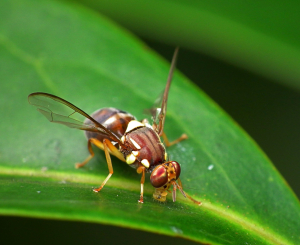He only left because the owner’s son came back and wanted his job. He’s also worked on a large sheep and beef farm in the Australian outback and again loved the life.
Yet he’s perceived as being ‘anti dairying’.
“I am definitely not ‘anti dairying’. I am anti any unsustainable form of farming. I am just a Kiwi who grew up believing we could swim in any river here. That’s all we did down south in the summer – swim in local rivers. But later when I started doing research work I realised we were going backwards fast on freshwater in New Zealand. That’s what got me going.”
The defining moment for Joy was when he and his partner took two of their young nieces to swim in the Oroua River in the Manawatu.
“It was on the state highway with an obvious driveway down to it and anybody would think you could go for a swim there,” he says. “But when the children got home, having swallowed some river water, they got diarrhoea and started vomiting. It took them days to recover.”
Joy was told by the local garage owner the Feilding sewage treatment discharge point was just upstream.
That got Joy fired up. He was studying at Massey where he gained a BSc, later masters and finally a doctorate. He was ‘mature’ student, starting his studies at 33 – he’s now in his mid-50s.
Joy is perceived as ‘anti-farmer’, being totally opposed to dairy farming and an alarmist. But he claims this is not so and, in fact, he has a great deal of sympathy for farmers who feel picked on.
“I’d feel picked on if I was one of them as well. There is no doubt they are victims of a bigger system. They are caught up in a system which I don’t think most of them are happy with, but that’s the reality they have got to live with,”
Joy says Feds national president Bruce Wills shares many of his views on the environment, but is under pressure from his own members.
The ‘system’ Joy refers to is the wider industry – which he sees as a powerful group that lobbies central and local government. He points to efforts the sector put into fighting the Horizons Regional Council One Plan. He is critical of the Ministry for the Environment for lowering the national standards for freshwater.
“The latest National Objectives Framework basically means the limits on nitrogen exceed the Yangtze River in China and the Mississippi River in the USA. It’s blatantly obvious everything they are doing is to allow the expansion of dairy.
“The statement around freshwater in New Zealand says that things are stable or improving. Yet when I take their data and analyse it, I find that two-thirds of the sites around the country have ‘significant trends’ and of that group, two-thirds are getting worse.
“How the hell you can turn that into stable or improving is unbelievable – it’s denying the reality.”
Joy denies he’s an alarmist saying it’s a fact that 68% of the native fish species in New Zealand are under threat – the highest in the world. He’s not being impatient calling for change, he says.
“You could call me impatient if I was saying I want improvement to happen quicker, but we are getting worse. I don’t even see any sign of stopping the decline – let alone improving.”
He focuses on dairy because it has the biggest impact. In the Manawatu River about 5% of the negative impacts come from things such as wastewater treatment plants, but 95% come from intensive dairying.
He doesn’t blame individual farmers– local authorities are in his firing line.
“I think they have failed completely because they knew a long time ago that intensification was going to lead to bigger impacts on the environment, but they spent all their time consenting dairy shed discharges and that’s the stuff that makes the news. Yet it’s such a tiny proportion of the problem – the real problem is intensification.”
Councils such as Horizons and Environment Waikato tried to do something but came under pressure from lobby groups such as Federated Farmers, he says.
“DairyNZ to me is just an arm of Fonterra and I read the stuff they do and they are part of the problem for sure… businesses are about making profit and I accept that.
“But they seem to be shooting themselves in the foot with this. KPMG, Rabobank and others are now pointing out how crucial the clean, green image is to marketing our products. Other countries are increasing their milk production.
“We are at the bottom of the world – we are miles from anywhere. We have got everything going against us. The one thing in our favour is our clean, green image and if we lose that then we are just another producer of white powder.”
The solution is to stop intensification now and to look at alternative systems including once a day milking, cow houses, stand-off pads and reduced fertiliser use to reduce inputs. There are plenty of examples of farmers performing profitability without intensive systems, he says.
Some science is being done by organisations and companies with a ‘vested interest’ in the outcomes.
“It’s a well-worn tactic to question the science when you don’t like what it is telling you. The science is a helluva lot better than what the industry tries to make out.”
No surprises Joy is supportive of Fish and Game, which he says is the only group with the money and the resources to fight the move to intensive dairying.
“It’s so one sided – industry, government, local government all have a vested interest in intensifying because they are not thinking in the long term – they are just thinking short term.”
See editorial page 22.

















